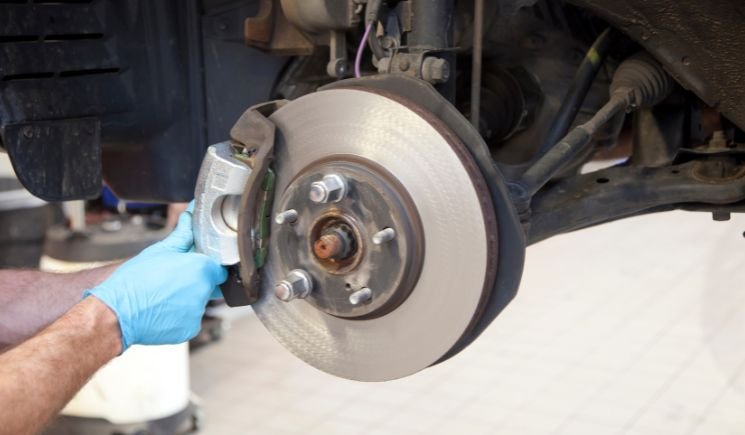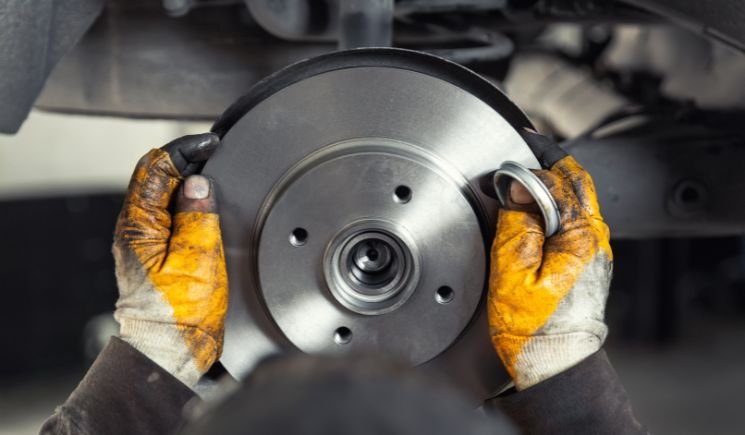Brake Caliper Torque Specs: Sharing The Perfect Optimal Performance

When it comes to the optimal performance of your vehicle’s braking system, precision and attention to detail play a pivotal role. One often overlooked yet essential aspect is ensuring the proper torque specifications for your brake calipers.
These unsung heroes of the braking system are responsible for clamping down on your rotors and bringing your vehicle to a safe stop. However, achieving that perfect balance between stopping power and safety requires more than a general idea of how tight those bolts should be.
In this article, we’ll delve into the critical importance of brake caliper torque specs, why they matter, and how adhering to the correct specifications can make all the difference in your driving experience. Whether you’re a DIY enthusiast or want to understand the inner workings of your vehicle, read on to discover the key to sharing the perfect optimal performance for your brakes.
Suitable Brake Caliper Torque Specifications For Vehicles
Vehicle Specific
- Brake caliper torque specs vary based on the make and model of your vehicle.
- Always consult your vehicle’s manual or the manufacturer’s recommendations for precise torque values.
Correct Tool
- Use a reliable torque wrench to achieve the specified torque. Which ensures accurate measurement and prevents over-tightening, which can cause damage.
Lubrication
- Some torque specs require specific lubricants. Follow the manufacturer’s instructions to prevent friction-related issues during tightening.
Check for Updates
- Manufacturers occasionally update torque specs based on engineering advancements.
- Stay updated with the newest information to ensure you use the correct values.
Symmetry
- When tightening caliper bolts, maintain symmetry in a crisscross pattern. Which helps distribute pressure evenly across the caliper by minimizing the risk of uneven clamping.
Proper Sequence
- If the manufacturer specifies a tightening sequence, be sure to follow it. Which ensures uniform pressure distribution and prevents distortion.
Recheck After Driving
- After driving for a short distance, recheck the torque.
- Sometimes, initial settling can cause bolts to loosen slightly. If necessary, retighten to the recommended spec.
Use Genuine Parts
- When replacing brake components, especially calipers or caliper bolts, use genuine parts from reputable manufacturers. Which ensures compatibility and accurate torque values.
Nissan Altima Caliper Bracket Bolt Torque: Let’s Find It Out
Avoid Guesswork
- Never guess or estimate the torque. Incorrect torqued calipers can compromise your braking system’s performance and safety.
Professional Help
- If you need help with torque specs or the proper tools, consider seeking help from a professional mechanic. Which guarantees that the brakes are correctly torqued and enhanced safety.
Frequently Asked Questions About Brake Caliper Torque Specs
Q: Where can I find the torque for my vehicle’s caliper mounting bolts?
A: The factory service manual or repair database for your exact make, model, and year will list the manufacturer’s mentioned torque spec range for the caliper attaching bolts.
Q: What happens if brake caliper bolts are under-torqued?
A: Under-torque leads to loose calipers that can leak, cause uneven pad wear, allow vibration and noise, reduce braking ability, and potentially detach over time.
Q: What are the risks of over-torquing brake caliper bolts?
A: Overtightening caliper bolts can damage threads, shear off bolts, crack housings, and warp rotors. It provides no performance benefit and only risks irreversible damage.
Q: Can I use a basic socket wrench to tighten caliper bolts?
A: A quality torque wrench is highly recommended to accurately achieve the precise torque values specified by the factory and avoid under or over-torquing.
Q: How important is the tightening sequence for caliper bolts?
A: The factory-mentioned sequence draws down the caliper evenly to avoid distortion. Always follow the sequence in the service manual.
Q: Do I need to re-torque the caliper bolts after a break-in period?
A: It’s wise to recheck torque specifications after the first few hundred miles of driving to account for any settling that may have occurred.





